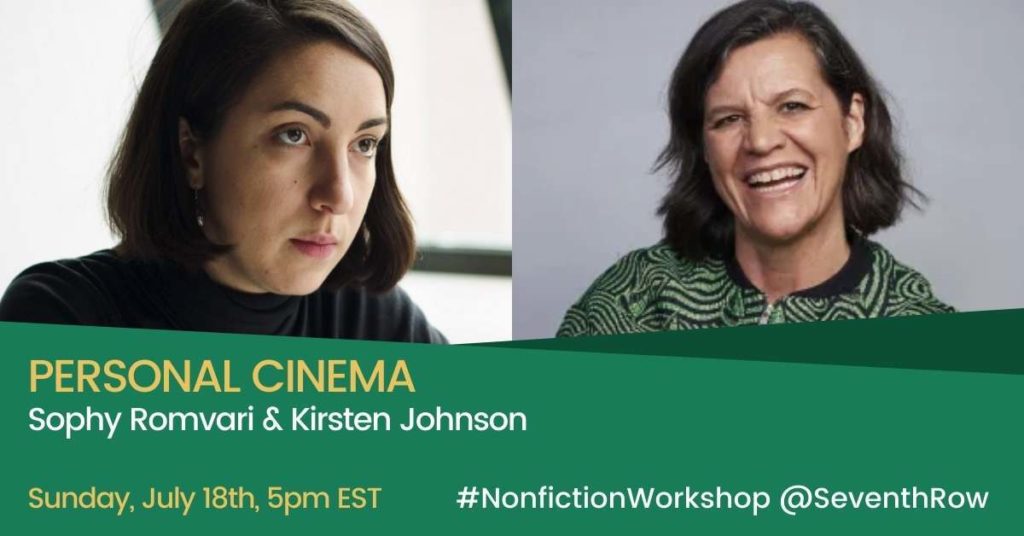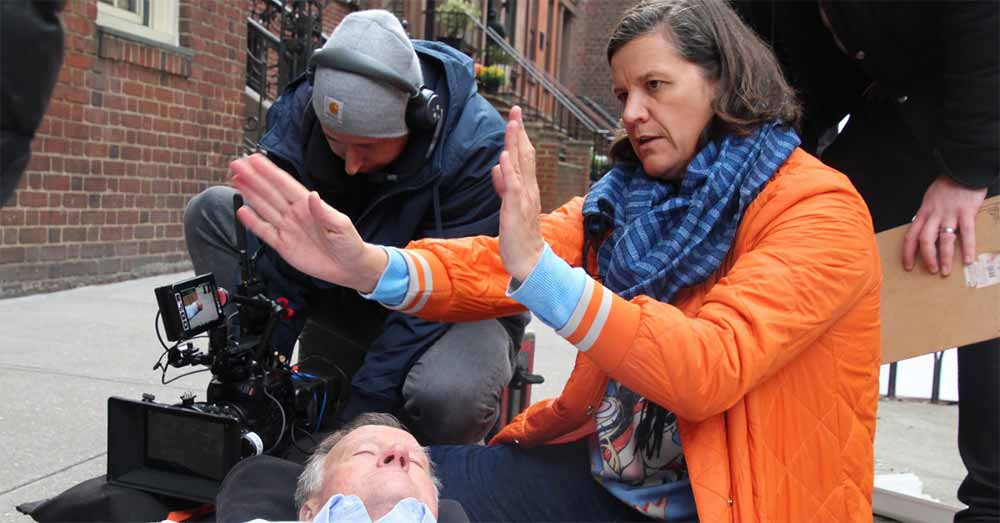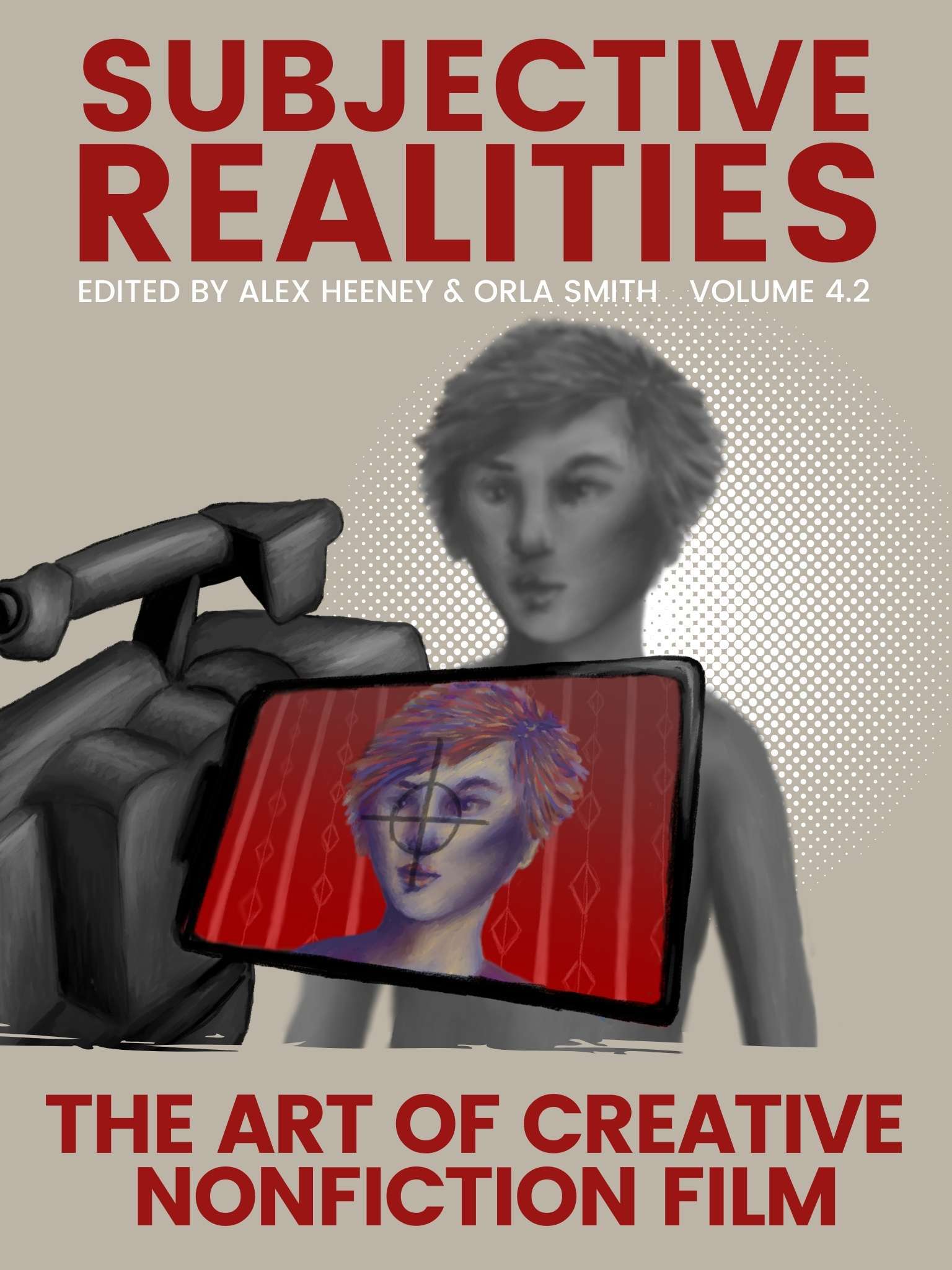Get your ticket to a masterclass between Kirsten Johnson (Dick Johnson is Dead) and Sophy Romvari (Still Processing), two nonfiction filmmakers who turn their cameras on themselves.

Discover one film you didn’t know you needed:
Not in the zeitgeist. Not pushed by streamers.
But still easy to find — and worth sitting with.
And a guide to help you do just that.
This week marks the continuation of the 2021 Creative Nonfiction Workshop, a two-month workshop exploring boundary-pushing documentary cinema. We consider ‘creative nonfiction’ to be documentary films that challenge what we traditionally think of documentary to be. They’re just as much about who’s telling the story, why, and how, then what the story actually is.
Our second live Zoom masterclass will be a conversation between filmmakers Kirsten Johnson (Dick Johnson is Dead) and Sophy Romvari (Still Processing) on Sunday, July 18th, at 5pm ET. The conversation will revolve around the topic of creating personal nonfiction cinema. It will last ninety minutes and attendees will get the chance to ask the speakers their own questions.
Who is Kirsten Johnson?

Longtime documentary cinematographer Kirsten Johnson has established herself as a leading documentary director in the past five years, making deeply personal films such as Cameraperson (2016) and her latest film, Dick Johnson is Dead (2020), which was distributed via Netflix.
Johnson’s first feature as a director, Cameraperson, takes a look at her experience of working as a cinematographer for other documentary directors over many years. The film is a memoir told through outtakes from films Johnson has shot and a voiceover by Johnson.
Dick Johnson is Dead is a bracingly frank self-portrait in which Johnson turns the camera on herself and her titular father, a jovial psychiatrist who has just been diagnosed with dementia. It’s also an absurdist comedy: in between vérité scenes of father and daughter spending time together, the pair attempt to cheat death by staging Dick’s death over and over again, with the help of stunt performers.
This is what Johnson said when we interviewed her about the film:
What we [decided] was that I would shoot in unexpected situations. [For example, when] my dad needed to sell his house, I wasn’t ready for it; he wasn’t ready for it; I was in shock… so I’m filming in that situation. Then OK, [I ask myself,] what were the meaningful things that happened in [that situation]? Then I’ll build a death back into it. So we would let real life lead us, and then we would go back in time to a moment of significance within that documentary evidence and attempt to craft this fictional moment of death within that. Sometimes, it worked, and sometimes, it didn’t.
We were also thinking a lot about camera language and the fact that Cameraperson exists, so people know something about who I am behind the camera. Maybe they’ve seen that film; maybe they haven’t. But this film also establishes that I’m behind the camera [as Johnson is a visible and audible presence in the film]. So what would I do if my father had a heart attack and an ambulance came? Not what would someone do, but what would I do?
Read an excerpt from the interview here.
The full interview will feature in our upcoming ebook, Subjective realities: The art of creative nonfiction film.
Who is Sophy Romvari?

Canadian filmmaker Sophy Romvari has made her name over the past decade with fiction and nonfiction short films, many of which are self-reflexive. As well as Still Processing (2020), her films include Pumpkin Movie (2017), Norman Norman (2018), and In Dog Years (2019).
Her acclaimed short film, Still Processing (recently released on Mubi worldwide), explores her own family’s grief and healing process.
In the film, after a long negotiation with her parents over her desire to make a film reflecting on her two older brothers’ deaths, Romvari’s father presents her with a box of photos, videos, and film negatives. We watch as, for the first time, she takes them out. In black and white photographs taken by her father, we see children at rest and play. In one photo, a young Sophy is captured in closeup, looking directly into the camera. It’s a confrontational image, and given the film’s subject, it’s hard not to read melancholy in her expression. The photos capture an almost foreboding doom. They capture fleeting expressions that are transformed by events that follow.
This is what Romvari said when we interviewed her about the film:
Personal filmmaking has a lot of potential, especially for emerging filmmakers or people who are trying to get into the film industry. I don’t like this idea that it has to be a stepping stone. Some people just want to make shorts. They’re so much more accessible, and they cost less money. Personal filmmaking is also a budgetary thing. You can use what you have around you. Depending on the way you want to execute work, it can be a lot cheaper to make self-reflection or something that you’ve experienced rather than a genre piece. A sci-fi or horror film, of course, can also be deeply personal. But I think that’s why there is a lot of Canadian hybrid personal filmmaking.
How can I watch Kirsten’s and Sophy’s films?
Ticket holders to the 2021 Creative Nonfiction Workshop will be given screening access to Still Processing. Unfortunately tickets are currently closed for the workshop. If you sign up for Seventh Row updates, we’ll keep you posted on if that changes and on any future events.
Sophy Romvari’s Still Processing is currently available worldwide on Mubi.
The rest of Sophy’s films are available via her website.
Kirsten Johnson’s Dick Johnson is Dead is currently available worldwide on Netflix.
Johnson’s Cameraperson is on Criterion Channel in Canada and the US. It is available to rent on VOD in the UK.
How can I attend the masterclass?
If you are a 2021 Creative Nonfiction Workshop ticket holder, you already have access to the masterclass.
However, we’re currently selling a small allotment of one-off tickets to this masterclass. With one of these tickets, you will get access to the Zoom call on Sunday, although you won’t get the other benefits of being a workshop ticket holder (access to the films, a free ebook, access to a recording of the masterclass after the fact, etc).
If you are a student or a low income person and you want to attend the masterclass, email us at contact@seventh-row.com and we’ll see if we can accommodate you. We have a small allotment of free tickets available for these purposes.


